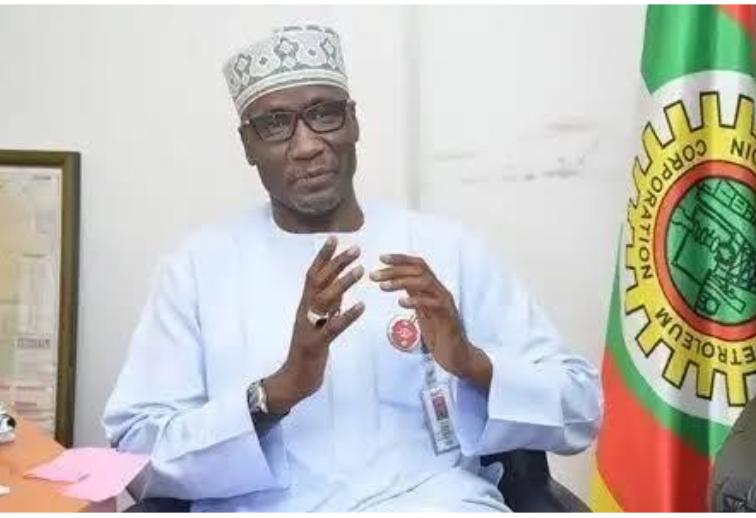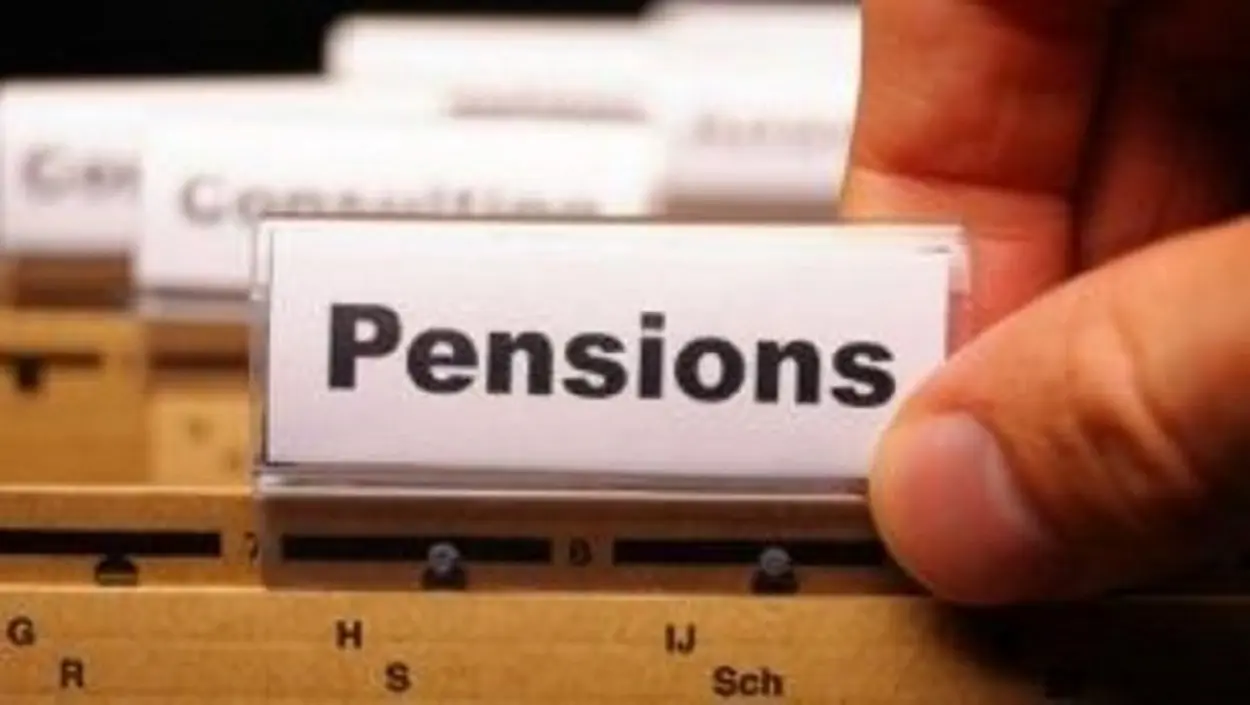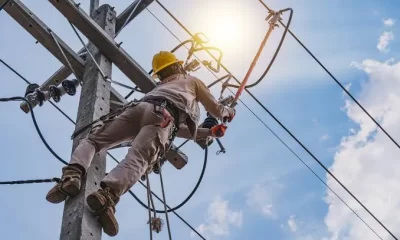COVER
NNPC Overshoots OPEC Quota, Increases Oil Output to 2.2mbd

By Tony Obiechina and Mathew Dadiya, Abuja
The Federal Government has disclosed that it has increased crude oil output from 1.77 million to 2.2 million barrels per day.
Recall that Nigeria had signed an agreement with members of the Organisation of Petroleum Exporting Countries (OPE) and some non-OPEC countries to curtail global crude oil output in a bid to address the declining price of crude oil in the international market.
Group Managing Director (GMD), Nigerian National Petroleum Corporation (NNPC), Mallam Mele Kyari, who revealed this at the weekend, said that Nigeria’s December oil production was 2.
2 million barrels per day.Global energy data company, S&P Global Platts, reported that Kyari, who spoke at the Atlantic Council Global Energy Forum in Abu Dhabi, United Arab Emirates said: “You can produce condensate which is not part of the OPEC commitments. We are focusing our production to more gas-based reservoirs so that we can continue to grow our production while maintaining balance in the market.
“We have met our commitment by December. Nigeria was currently counting production of its new Egina grade as condensate”.
According to the report, Kyari, however, declined to say how much of that was crude and how much was condensate, but the GMD insisted that Nigeria was fully in compliant with its quota of 1.77 million barrels per day for crude oil.
Kyari explained that OPEC quotas only apply to crude oil production, not condensate, disclosing that Nigeria was shifting its upstream work towards natural gas liquids, NGL, and natural gas, to better comply with its crude production quota under the OPEC+ agreement.
Also, he disclosed that Nigeria was still on track to launch a new oil licensing round in the first half of 2020 for both offshore and onshore blocks.
Kyari, who declined to specify a particular date in the first half for the planned crude oil licensing round, added that Nigeria’s legislature was in the process of reviewing its petroleum law, which according to him, would take care of the concerns.
The Platts report quoted a source as saying that Egina crude has a gravity 27.5 API, significantly heavier than typical condensates, and a sulphur content of 0.17 per cent while it added that the oil is expected to have high yields of gasoil and distillates.
Despite the NNPC’s claim of abiding by the 1.77 million barrels deal, S&P Global Platts’ said in its latest survey of OPEC production, it estimated Nigeria’s December crude output at 1.84 million barrels per day, adding that starting this month, Nigeria’s quota drops to 1.75 million barrels under the OPEC+ coalition’s agreement to deepen its production cuts through March.
FG Reaps N5trn from Oil & Gas Sales in 2019
Meanwhile, a Data from the Central Bank of Nigeria (CBN) has revealed that the Federal Government earned N5.04tn from the sale of oil between January and November 2019.
According to the CBN economic report for November, the amount was lower than the N8.77tn revenue target provided for in the 2019 budget for the 11-month period.
A breakdown of the N5.04tn oil revenue showed that the sum of N363.9bn was generated from crude oil and gas exports, while the sum of N2.94tn was generated from Petroleum Profit Tax and Royalties.
A monthly breakdown of the oil revenue showed that N417.3bn was earned in January, while February, March, April, May and June had N479.5bn, N516.9bn, N472.4bn, N410.2bn and N336.6bn respectively.
For the months of June, the Nigeria National Petroleum Corporation made the sum of N336.6bn; July had N387.7bn; August, N484.8bn while September, October and November had N467.6bn, N577.3bn and N489.1bn respectively.
The decrease in oil revenue, relative to the monthly budget estimate, was attributed to shut-ins and shut-downs at some NNPC terminals.
The shutdown, according to findings, was due to pipeline leakages and maintenance activities.
The report read in part, “Oil receipt, at N489.08bn or 56.9 per cent of total revenue, was below both the monthly budget of N798.83bn and the preceding month’s receipt of N577.30bn by 38.8 per cent and 15.3 per cent respectively.”
COVER
Veritas Kapital Records N13.6bn Premium in 2025
Veritas Kapital Assurance Plc has reported an eight percent rise in Gross Written Premium to N13.6 billion in the first half of the year.Managing Director of Veritas Kapital Assurance, Dr. Adaobi Nwakuche disclosed this in a statement on Wednesday in Lagos.Nwakuche said the performance reflected strong market presence and effective distribution channels.
She noted that Net Insurance and Investment Income surged by 244 per cent to N5. 2 billion, from N1.52 billion recorded in the full year 2024.According to her, Profit After Tax reached N3.2 billion, already surpassing the company’s total earnings for the full year 2024.“These results affirm the strength of our values-driven model, built on our people’s dedication, a clear strategy, and unwavering focus on customer value,” she said.Nwakuche said Total Assets rose by 11 per cent to N37 billion from N33.1 billion in 2024, showing improved financial health and operational efficiency.She added that shareholders’ funds increased to N15.1 billion from N11.92 billion in 2024, underscoring investor confidence and sound governance.“This performance is the result of disciplined underwriting, investment optimisation, expanded digital capabilities, and strong customer-focused service delivery.“The H1 2025 results go beyond growth. They show Veritas Kapital’s evolving role as a partner in progress, delivering solutions relevant to individuals, businesses, and communities. “Each figure tells a story of protection delivered, promises honoured, and futures secured. We are building trust, not merely growing profits,” Nwakuche said.She added that as Nigeria adapts to new economic realities, Veritas Kapital is charting a course defined by agility, innovation, and intentionality.The company, she said, is investing in digital access, claims responsiveness, and talent development, while reinforcing its core values of integrity, transparency, and service.COVER
FG Disburses N5.12bn Pension Arrears to 90,689 DBS Pensioners

By Tony Obiechina, Abuja
The Federal Government has released funds for the disbursement of N5.12 billion in pension arrears to 90,689 Defined Benefit Scheme (DBS) pensioners under the Pension Transitional Arrangement Directorate.This was contained in a statement by the Head of Corporate Communications of PTAD, Olugbenga Ajayi.
He said that the directorate had finalised the disbursement of the money. The Nigeria Customs Service, the Nigeria Immigration Service, and Prisons Pension Department (CIPPD) pensioners are 8,626, received N276,032, for one-month arrears; the Police, Pension Department (PPD) pensioners are 9,681, received N619,584, for two months as arrears. The Civil Service Pension Department (CSPD) pensioners are 12,773, received N408,736, for one-month arrears, and the Parastatals Pension Department (PAPD) pensioners are 59,609, received N3,814,He said that the payment reaffirms the administration’s commitment to ensuring that pensioners receive their due entitlements in line with the Renewed Hope Agenda of President Bola TinubuAccording to the statement, the approvals align with the President’s Renewed Hope Agenda.“This move shows President Tinubu’s strong commitment to senior citizens’ welfare and marks a new era in DBS pension management,” said PTAD, Executive Secretary, Tolulope Odunaiya.Among the key measures is the immediate implementation of an extra budgetary allocation to enforce new pension rates for DBS pensioners.The President also endorsed the adoption of a proposed pension harmonisation policy, which will be incorporated into the 2026 pension budget. Additionally, health insurance coverage for all DBS pensioners has been approved, ensuring access to essential healthcare services.The proposed reforms include a new pension rate of N32,000 and incremental increases of 10.66% and 12.95% for pensioners from defunct and privatised agencies. Other components of the reform package include harmonisation of pension rates across all DBS pensioners and their enrolment into the National Health Insurance Scheme (NHIS).In June, PTAD announced the successful disbursement of N8.6 billion in pension arrears to 148,625 eligible DBS pensioners across various sectors. The payments reflect the implementation of the N32,000 pension increment approved by President Tinubu in 2024.PTAD had previously settled arrears related to the first pension increment of 20% to 28%, which came into effect in January 2024.COVER
NAF Offensive Decimates 592 Terrorists, Destroys 372 Assets in Eight Months

By David Torough, Abuja
The Nigerian Air Force (NAF) has killed no fewer than 592 terrorists and destroyed 372 enemy assets in Borno within the last eight months, surpassing the total operational gains recorded in 2024.A statement by NAF’s spokesman, Air Commodore Ehimen Ejodame yesterday said the Chief of the Air Staff (CAS), Air Marshal Hasan Abubakar, said this during a courtesy visit to Gov.
Babagana Zulum of Borno. Abubakar said the offensive had destroyed 206 technical vehicles and 166 logistics hubs in deep hostile territory, with coordinated day-and-night strikes from Gonori to Rann, Dikwa to Damboa, Azir to Mallam Fatori.He said the offensive had been boosted by the deployment of A-29 Super Tucano aircraft capable of precision and night missions, Mi-171 helicopters for medical evacuation and logistics, and enhanced intelligence, surveillance and reconnaissance platforms for round-the-clock target tracking.He added that a new Mi-35 gunship was expected to further intensify close-air support for ground troops in the theatre.“Backed by an upgraded fleet and precision night-strike capabilities, NAF aircraft executed 798 combat sorties, clocking over 1,500 operational flight hours in the Air Component of Operation Hadin Kai.“This year, our air war is faster, sharper, and more surgical.“We are taking out high-value targets, crippling their logistics, and hunting down every cell that threatens the peace of the North-East,” he said.The CAS also praised the “Borno Model” of combining community-driven non-kinetic measures with decisive military action, saying it had proven effective in the counter-insurgency campaign.He also inspected facilities at the NAF Base, met with aircrew and ground personnel, and received operational briefings.He reaffirmed the NAF’s commitment to precision air power, intelligence-led operations, and inter-agency collaboration to protect Nigerians.In his response, Gov. Zulum praised the NAF for its sustained air support in degrading terrorist capabilities and protecting communities.According to him, the NAF has been a steadfast partner in their fight against insurgency.“Your operations have saved countless lives and allowed our communities to begin rebuilding.“The people of Borno recognise your sacrifices and stand firmly behind you,” he said.























